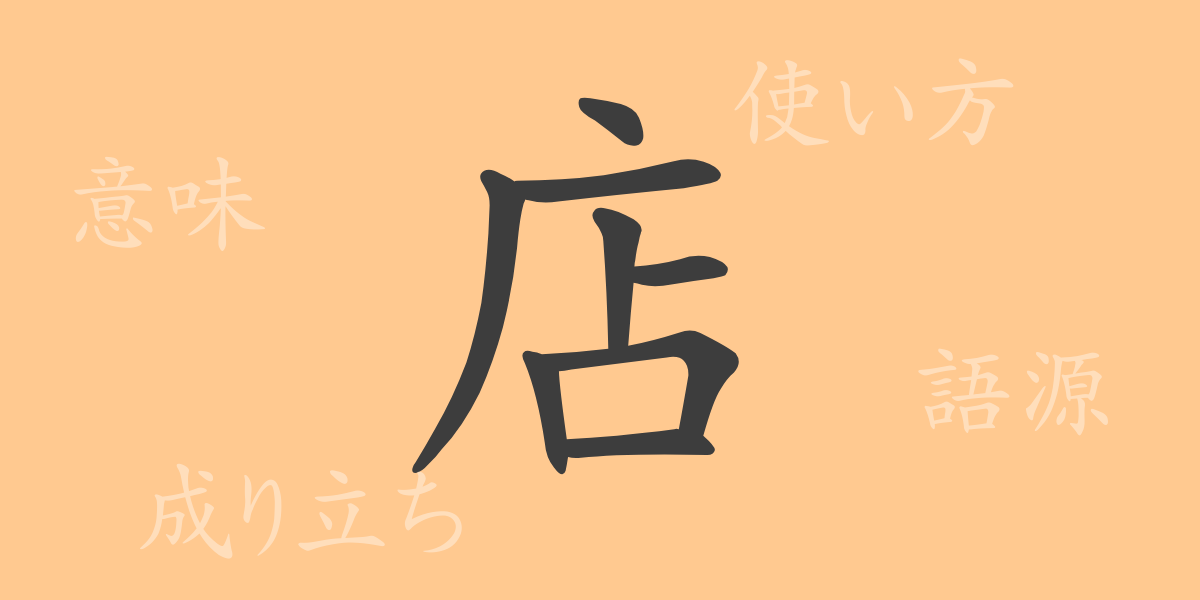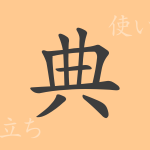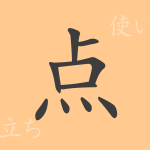In every corner of Japan, the ‘store’ is an essential part of daily life. This article explores the origins and modern use of the kanji ‘店(テン)’, revealing the meanings embedded in each character and deepening our understanding of the Japanese language.
Origins of ‘店(テン)’
The kanji ‘店’ originated in ancient China, deriving from the word ‘店肆(てんし)’ which meant a place of business. As a symbol of commerce, ‘店’ has been closely linked to daily life and has played a significant role in the development of market economies.
Meanings and Usage of ‘店(テン)’
In modern Japanese, ‘店’ commonly refers to any place that offers goods or services, such as restaurants, bookstores, and clothing stores. Each type of ‘店’ plays an indispensable role in everyday life.
Readings, Stroke Count, and Radical of ‘店(テン)’
The kanji ‘店’ has specific readings and structural features:
- Readings: On’yomi is ‘テン’, Kun’yomi is ‘みせ’
- Stroke Count: A total of 8 strokes.
- Radical: ‘广(まだれ)’
Idioms, Phrases, and Proverbs Using ‘店(テン)’
The character ‘店’ is used in various idioms and phrases. For example, ‘店を構える’ means to start a business, and ‘店を畳む’ means to close a business. Additionally, ‘店子(たなこ)’ refers to a tenant of a shop, and ‘店先(みせさき)’ denotes the entrance area of a store.
Conclusion on ‘店(テン)’
The kanji ‘店’ signifies more than just a place of commerce; it embodies significant roles in Japan’s economy and culture. Embedded within this single character is a rich history and the evolving lives of people, reflecting the profound depth of the Japanese language.

























